On the night we get results from the New Hampshire Presidential Primary (Mitt Romney won by the way), I roll out my first update of 2012. Storywise, I am fifty-three years away from present day. This update is important because it starts to move the focus of this AAR away from Sparkman - who is pretty much done now as the main character - and towards the big fight over who will replace him in 1960 and the key players involved.
----------------------------------------------------------------------------------------------------------------------------------
Heading to the Kitchen
In the summer of 1959:
-The British colony of Singapore was granted full internal self-governance
-Fleet Admiral William D. Leahy, who served as Chief of Staff in the Willkie and Vandenberg Administrations, died in Bethesda, Maryland at age eighty-four
-Future basketball star Magic Johnson was born in Lansing, Michigan
-Director William Wyler was putting the finishing touches on his epic film version of an 1880 Lew Wallace novel called “Ben-Hur”
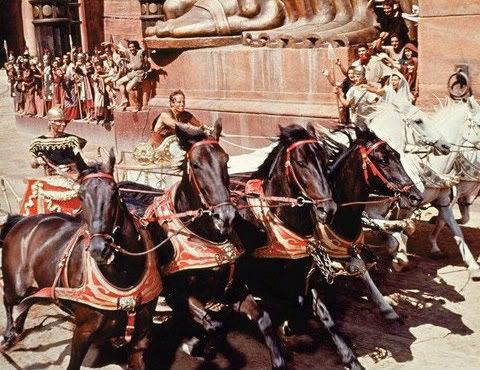
A major news story that July was the holding of free elections in Cuba. Nearly three months after the overthrow of the dictatorial Batista regime, men and women in the island nation headed to the polls to properly elect a new government. During the interim period between the overthrow and the elections, a provisional government existed led by President Manuel Urrutia Lleó. Given his background as a leading anti-Batista figure, Lleó was seen as a natural choice to take the reins from the exiled despot. Lleó’s first action as President was to announce that he would step aside peacefully if the voters deemed it necessary to elect someone else in July. The announcement was meant to reassure both his people and his American neighbor up north that the days of dodging the will of the voters were over. During his temporary tenure, Lleó took several steps to endear himself to the public as the anti-Batista leader. To give the rebels the feeling that they had a stake in the state of affairs in Cuba, the President appointed Castro as Chief of the Army and made the resistance fighters the core of a new police force assigned the task of preventing widespread looting and vandalism following the collapse of the previous government. Lleó set up a special judicial committee to screen former Batista soldiers to determine who would be suitable to join the new military and who would be expelled on the grounds of questionable loyalties. Lleó issued a decree recognizing the role women played in the revolution and mandated that they be given a greater role in the new Cuba. These steps and others, carefully designed to win widespread support, helped cement Lleó’s hold on power and made it increasingly likely that he would win a mandate in July to continue his policies.
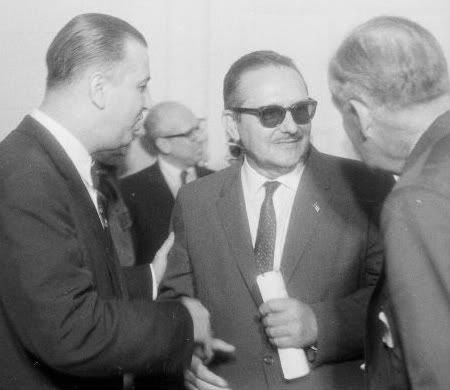
However, the idea of free elections ran into opposition from the new leader of the army. Despite his public declaration that “power does not interest me, and I will not take it,” power did in fact interest Castro. A socialist by heart, Fidel’s vision for Cuba was to oust supporters of democracy from government and make the country left-wing radical instead. If Cuba were to hold free elections, Castro believed it would make it harder for him to overthrow a popularly-elected government. That is why he was against the idea. However, Castro ran into a problem: the United States of America. The Cuban Revolution was successful, in part, because the CIA secretly supplied and funded Castro and his rebels. Sparkman had come out publically in favor of the revolution and had resumed diplomatic relations with Cuba after Lleó took over. The embargo had been lifted and military aid flowed into the new army. Sparkman was looking forward to free elections as a validation of his Cuban policy. To block the election now would make Castro look like the bad guy and risk everything he had worked hard for. It would make him a target if the CIA felt it necessary to intervene again…this time against rebellion. Not helping matters was the emergence of suggestions in America that he was a closet Communist. Understanding the danger posed by allowing those suggestions to flourish, Castro sought to nip them in the bud by traveling to the United States on May 22nd for a twelve-day charm offensive.
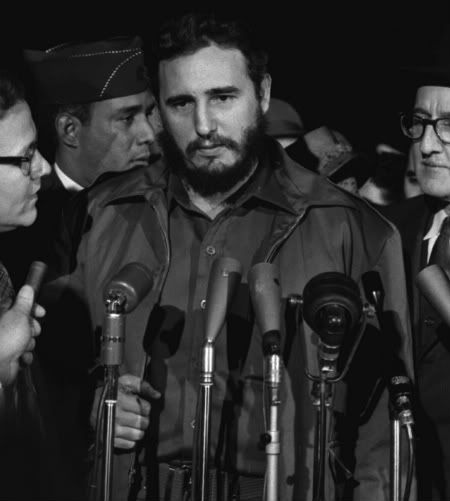
One of Castro’s first stops was the White House. Looking scruffy before reporters, the revolutionary shook hands with the American President. Sparkman beamed with pride as he welcomed his Cuban guest to the Executive Mansion. Thanks to his decision to intervene, Cuba now had a new government – one he planned to work with. Flashing a grin, Castro handed the President a box of expensive Cuban cigars. “On behalf of the Cuban people,” he said, “I thank you for showing solidarity with our recent revolution.”
Sparkman gladly accepted the gift, pointing out that “the people of Cuba have always occupied a sympathetic place in the hearts and minds of Americans.”
The two men were all smiles while photographers and cameramen recorded their meeting for prosperity. Afterwards, they retreated into the Oval Office for a closed-door meeting. Facing each other on parallel couches that sat in the middle of the room, Sparkman and Castro talked at length about Cuban affairs. The latter emphatically denied being a Communist:
“I know what some of your people think of [the rebels]. They think we are Communists. I have to say very clearly that we are not Communists. I want that to be very clear.”
Sparkman accepted Castro’s insistence that “I don’t agree with Communism” at face value and changed the topic to the upcoming free elections. Castro told the President at point-blank that he was opposed to the elections. His rationale was that “elections in Cuba have never brought stability but only strife and corruption.”
This triggered a debate in which Sparkman said he understood the frustration that comes when “the wrong people get elected” but made the counterargument that sometimes the wrong people have to get elected in order to bring out the right people. “I believe that this election will be different,” he predicted, “Because for the first time in a long time, you people have a genuine chance for peace and freedom.”
Of course, no election could change the fact that Cuba had a rocky road ahead of her. “You have to decide where you want to go,” Sparkman said in a manner that suggested he had no intention of telling Cubans what to do – a break from the interference of the past. Castro still wasn’t convinced that elections would ultimately be in his best interest, but he made a decision internally to keep his cards close to his chest. With his American host eager to treat Cuba like an equal, Castro thought that now wouldn’t be the right time to rock the boat. The old phrase “don’t bite the hand that feeds you” must have crossed his mind, considering he quietly dropped his opposition after the meeting. It might be best to lay low and see where things go; perhaps at some point down the road a situation might develop which would allow him to seize power. Ironically, the free elections that Castro was opposed to moved him closer to power. In July, a majority of voters decided to elevate Lleó from provisional President to freely-elected President. They gave him a mandate to continue his progressive-minded policies. Mindful of the revolutionary spirit that still lingered in post-Batista Cuba, Lleó sought to placate that spirit by naming Castro to be the new Prime Minister. He hoped that doing so would allow him to put Castro on a short leash. From Castro’s point of view, becoming Prime Minster meant he would have a greater say in decision-making than he did as head of the army. Of course, Lleó and Castro were ideological opposites; how long the partnership of a liberal and a socialist would last was a question no one could answer.
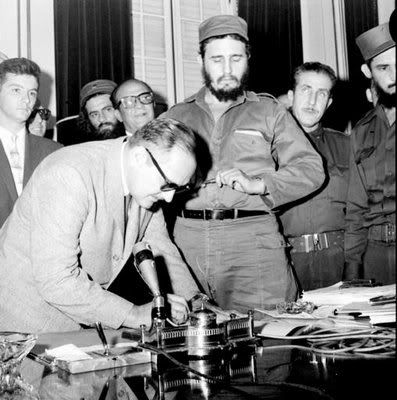
It certainly wasn’t a question the Vice President was paying attention to at the time. On the day the Cubans voted, Jackson was in Paris going through what he would call a “hellish” experience: meeting Charles de Gaulle. The meeting was part of a summertime four-nation swing through Europe that Scoop was making. Since he was planning on running for President next year, Jackson thought gaining foreign policy experience would provide him with an invaluable asset when the time came for people to start figuring out who should be the next President. Every summer since he became Vice President, Scoop had conducted a high-profile trip overseas (Latin and South America in 1957 / the Middle East in 1958). In the summer of 1959, Europe was chosen to be the next destination. The trip had started well in London, where the former Washington Senator discussed foreign policy with Prime Minister Eden at 10 Downing Street. Talking about their meeting later on, Eden said that Jackson came across as “very smart”; likewise, Jackson found Eden to be “likeable”. De Gaulle…not so much.
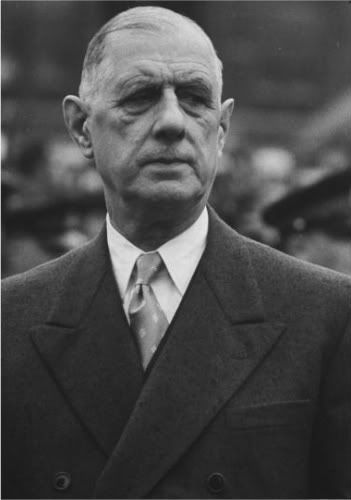
Whereas the reception in England had been warm, the reception in France was cold as ice. As President and founder of the Fifth Republic constitutional government, de Gaulle thought himself superior and was therefore arrogant in dealing with his American visitor. Jackson found it difficult to have any meaningful talk with de Gaulle and instead felt like he was being talked down to “like a parent towards a child.”
What he did get was a heavy whiff of patriotic fervor known as “Gaullism”. Time and again the President stressed the idea that France was a strong and independent nation that didn’t need help from any outsiders…especially the United States. “Unlike the rest of Europe,” de Gaulle said with utter contempt for his neighbors, “France will not run to your country to seek defense against the Soviet Union. If the Soviets dare to attack this nation, we will defend our honor to the utmost.”
Jackson learned that France was in the process of becoming the fourth nation (the others being the United States, the Soviet Union, and the United Kingdom) to possess nuclear weapons. “When that day comes,” de Gaulle spoke with pride, “France will be stronger and prouder.”
After hearing de Gaulle describe France as a major power for the umpteenth time, the Vice President left the meeting in disgust. “I cannot believe we sacrificed the lives of our men [in World War Two] so this bastard could have power,” he privately fumed. Jackson even went as far as to cable Sparkman the advice not to waste his time scheduling a visit to France:
“[De Gaulle] will not care in the slightest what you have to say.”
Sitting in his Paris hotel room shortly before leaving for his next stop, Scoop was annoyed enough about his terrible reception to exclaim to his foreign policy advisor, “What the hell is his problem?”
The foreign policy advisor to the Vice President happened to be a balding fifty-year-old State Department officer from Georgia named Dean Rusk. Sitting across from his boss, Rusk patiently explained that de Gaulle’s behavior traced back to his interaction with the Americans in the early 1940s. During that time, de Gaulle regarded himself as the leader of the Free French Forces opposing Germany. The Willkie Administration, harboring deep mistrust towards the self-appointed leader, refused to recognize him as such; instead, they preferred to work with French General Henri Giraud. When Willkie and de Gaulle met at the Casablanca Conference in 1943, the tension between them was such that they were barely on speaking terms by the time the conference ended. Part of the tension stemmed from the staunch anti-colonial attitude the American President harbored – much to the displeasure of de Gaulle and British Prime Minister Winston Churchill. Without consulting the Free French, the United States unilaterally liberated Morocco from Vichy control and granted the African country its’ independence. The Americans then proceeded to recognize the independence of the former French Middle Eastern colonies of Lebanon and Syria – who broke free following the collapse of France in 1940. To top it all off, it was US forces which captured Paris in November 1943 and booted the German occupiers from French soil. All these actions deeply offended de Gaulle, resulting in an anti-American grudge that has never gone away. “He is not a forgiving man,” Rusk said after recounting American-Franco interaction in the early 1940s, “Because of what we did then, he has held that against us ever since. There is simply no love for Americans.”
Jackson was unimpressed by the egotistical rationale; when Rusk pointed out that Nazi collaborationist Vichy France had condemned de Gaulle to death in absentia for treason, the Vice President darkly joked:
“Looking back, we might have saved ourselves blood, sweat, and tears had we simply handed him over to [Vichy] in the first place.”
After posing for some photographs in front of the famed Eiffel Tower, Jackson left France in a hurry. He wouldn’t return to the country again until 1973 – three years after de Gaulle’s death.
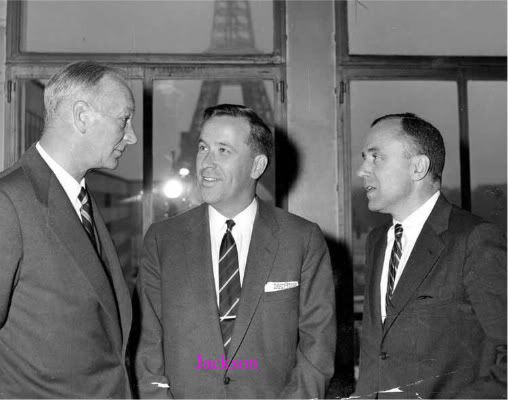
From France, it was on to Germany. The summer of 1959 marked the fortieth anniversary of the signing of the Treaty of Versailles, a controversial peace treaty which ended World War One (1914-1918) but at the same time laid the foundation for World War Two (1939-1947). Jackson was seven-years-old when that treaty was signed; twenty years later, he was serving as a prosecuting attorney when Nazi Germany invaded Poland. Now here he was in Berlin – once the beating heart of the Third Reich – being casually shown around the city by Mayor Willy Brandt. A year older than Scoop, Brandt was a social democrat whose love for Norway endeared him to his American visitor (Jackson’s parents had both immigrated to the United States from Norway). The two men hit it off, forming a lifelong friendship. The Mayor proudly showed off the urban development which was transforming a former capital with a dark past into a modern gleaming city. The Vice President was shown several construction sites across Berlin on which new hotels, skyscrapers, and apartment buildings were rising. He was so impressed by the transformation that it would inspire him to take up the cause of urban development back home. The tour included stops at Stadtschloss (German for “Berlin City Palace”) and Charlottenburg (named after the Prussian sister of England’s King George I), two royal palaces dating back to the Seventeenth Century which were then undergoing much-needed restoration. Outside the Reichstag, Jackson represented the United States in a solemn ceremony observing the fifteenth anniversary of the July 20th Incident (a military coup d’état which assassinated Adolf Hitler and overthrew the Nazi regime) and Germany’s subsequent surrender to the Allies. Although World War Two in Europe was history by now, a stark reminder that another war was presently dominating the continent could be found ninety-two miles east of Berlin at the Oder.
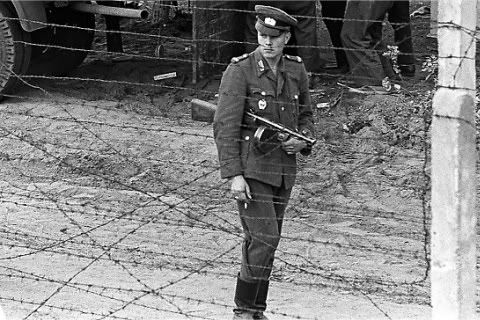
The Oder: it was here in the summer of 1944 that triumphant American and Soviet soldiers linked up after completing an epic pincer movement across Europe which began in the outskirts of Leningrad (also known as Saint Petersburg) and on the beaches of Sicily. Due to the fact that the Soviets were slowed down by stiff and fanatical German resistance in their westward drive towards the Oder, it was the Americans who reached this natural barrier first. After throwing up a platoon bridge across the river, elements of the U.S. and Red Armies met and joyously congratulated each other for vanquishing a mutual enemy. Fifteen years later, that happy moment felt like ancient history. The site of friendship between two allies now represented the hostility between two competing superpowers.
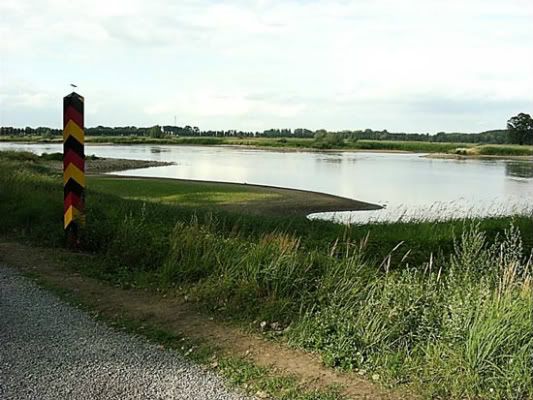
In this modern day photograph, Jackson stood roughly where the colorful post is and stared out across the Oder River towards the eastern side. What he saw took his breath away: a series of fortifications running down the length of the river known as the Oder–Neisse Line (the latter being the river which continues from the point the Oder turns eastward, running all the way down to the Czech Republic). Since the Oder–Neisse marked not only the natural border between Germany and Poland but also the ideological border between NATO and the Warsaw Pact, the Soviets took the defense of the river very seriously. The fortifications which dotted the river bank included miles of barbed wire (ironically an American invention), concrete walls, and guard towers armed with machine guns. Standing where he was, the Vice President could see men looking down at him from a guard tower. A soldier armed with a submachine gun paced alongside the barbed wire fence, keeping an eye on the tourists across the river. Behind that soldier sat anti-tank trenches, beds of nails, minefields, and other defenses clearly aimed at hindering vehicle movement. Many trees and bushes – replanted after the Cold War as part of a reconciliation process between Germany and Poland – were cleared away to provide a deadly field of fire. The Oder–Neisse Line was erected to serve two purposes:
-To serve as a first line of defense in the event of an attack launched from Germany
-To prevent people on the Polish side from trying to escape across the river to freedom
The United States Ambassador to Germany, who was part of the entourage, informed Jackson that he had received several reported cases of people dying trying to breech the defensives. “These guards just mow them down,” he said grimly. For Scoop, seeing this visual symbol of the Iron Curtain became a sobering experience he would never forget. It also hardened his view that the Soviet Union was an oppressive “Evil Empire” which the United States had to oppose at all costs in the name of freedom. Before turning away, the Vice President asked Rusk in a mocking tone:
“We hear all the time bragging from the Kremlin that Communism is superior to Democracy. Tell me, Dean: when was the last time you saw a Democracy erect a wall to keep people in?”
Rusk replied that he never had and added that he considered it to be “a monument to Communist failure.”
Having seen the perimeter of the Communist world, these two men prepared to enter the heart of the Evil Empire for a dramatic showdown with its leader in the most surreal setting anyone could come up with: a kitchen mock-up.
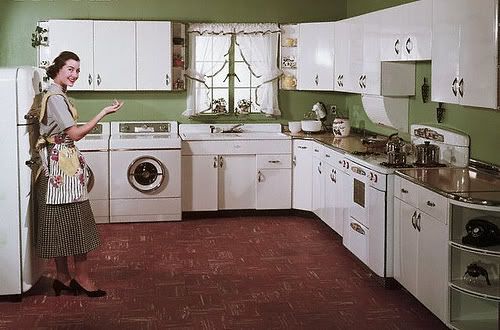
----------------------------------------------------------------------------------------------------------------------------------
Next up: the famous Kitchen Debate gets an alternate history makeover. We are almost done with the 1950s, folks.
----------------------------------------------------------------------------------------------------------------------------------
Heading to the Kitchen
In the summer of 1959:
-The British colony of Singapore was granted full internal self-governance
-Fleet Admiral William D. Leahy, who served as Chief of Staff in the Willkie and Vandenberg Administrations, died in Bethesda, Maryland at age eighty-four
-Future basketball star Magic Johnson was born in Lansing, Michigan
-Director William Wyler was putting the finishing touches on his epic film version of an 1880 Lew Wallace novel called “Ben-Hur”

A major news story that July was the holding of free elections in Cuba. Nearly three months after the overthrow of the dictatorial Batista regime, men and women in the island nation headed to the polls to properly elect a new government. During the interim period between the overthrow and the elections, a provisional government existed led by President Manuel Urrutia Lleó. Given his background as a leading anti-Batista figure, Lleó was seen as a natural choice to take the reins from the exiled despot. Lleó’s first action as President was to announce that he would step aside peacefully if the voters deemed it necessary to elect someone else in July. The announcement was meant to reassure both his people and his American neighbor up north that the days of dodging the will of the voters were over. During his temporary tenure, Lleó took several steps to endear himself to the public as the anti-Batista leader. To give the rebels the feeling that they had a stake in the state of affairs in Cuba, the President appointed Castro as Chief of the Army and made the resistance fighters the core of a new police force assigned the task of preventing widespread looting and vandalism following the collapse of the previous government. Lleó set up a special judicial committee to screen former Batista soldiers to determine who would be suitable to join the new military and who would be expelled on the grounds of questionable loyalties. Lleó issued a decree recognizing the role women played in the revolution and mandated that they be given a greater role in the new Cuba. These steps and others, carefully designed to win widespread support, helped cement Lleó’s hold on power and made it increasingly likely that he would win a mandate in July to continue his policies.

However, the idea of free elections ran into opposition from the new leader of the army. Despite his public declaration that “power does not interest me, and I will not take it,” power did in fact interest Castro. A socialist by heart, Fidel’s vision for Cuba was to oust supporters of democracy from government and make the country left-wing radical instead. If Cuba were to hold free elections, Castro believed it would make it harder for him to overthrow a popularly-elected government. That is why he was against the idea. However, Castro ran into a problem: the United States of America. The Cuban Revolution was successful, in part, because the CIA secretly supplied and funded Castro and his rebels. Sparkman had come out publically in favor of the revolution and had resumed diplomatic relations with Cuba after Lleó took over. The embargo had been lifted and military aid flowed into the new army. Sparkman was looking forward to free elections as a validation of his Cuban policy. To block the election now would make Castro look like the bad guy and risk everything he had worked hard for. It would make him a target if the CIA felt it necessary to intervene again…this time against rebellion. Not helping matters was the emergence of suggestions in America that he was a closet Communist. Understanding the danger posed by allowing those suggestions to flourish, Castro sought to nip them in the bud by traveling to the United States on May 22nd for a twelve-day charm offensive.

One of Castro’s first stops was the White House. Looking scruffy before reporters, the revolutionary shook hands with the American President. Sparkman beamed with pride as he welcomed his Cuban guest to the Executive Mansion. Thanks to his decision to intervene, Cuba now had a new government – one he planned to work with. Flashing a grin, Castro handed the President a box of expensive Cuban cigars. “On behalf of the Cuban people,” he said, “I thank you for showing solidarity with our recent revolution.”
Sparkman gladly accepted the gift, pointing out that “the people of Cuba have always occupied a sympathetic place in the hearts and minds of Americans.”
The two men were all smiles while photographers and cameramen recorded their meeting for prosperity. Afterwards, they retreated into the Oval Office for a closed-door meeting. Facing each other on parallel couches that sat in the middle of the room, Sparkman and Castro talked at length about Cuban affairs. The latter emphatically denied being a Communist:
“I know what some of your people think of [the rebels]. They think we are Communists. I have to say very clearly that we are not Communists. I want that to be very clear.”
Sparkman accepted Castro’s insistence that “I don’t agree with Communism” at face value and changed the topic to the upcoming free elections. Castro told the President at point-blank that he was opposed to the elections. His rationale was that “elections in Cuba have never brought stability but only strife and corruption.”
This triggered a debate in which Sparkman said he understood the frustration that comes when “the wrong people get elected” but made the counterargument that sometimes the wrong people have to get elected in order to bring out the right people. “I believe that this election will be different,” he predicted, “Because for the first time in a long time, you people have a genuine chance for peace and freedom.”
Of course, no election could change the fact that Cuba had a rocky road ahead of her. “You have to decide where you want to go,” Sparkman said in a manner that suggested he had no intention of telling Cubans what to do – a break from the interference of the past. Castro still wasn’t convinced that elections would ultimately be in his best interest, but he made a decision internally to keep his cards close to his chest. With his American host eager to treat Cuba like an equal, Castro thought that now wouldn’t be the right time to rock the boat. The old phrase “don’t bite the hand that feeds you” must have crossed his mind, considering he quietly dropped his opposition after the meeting. It might be best to lay low and see where things go; perhaps at some point down the road a situation might develop which would allow him to seize power. Ironically, the free elections that Castro was opposed to moved him closer to power. In July, a majority of voters decided to elevate Lleó from provisional President to freely-elected President. They gave him a mandate to continue his progressive-minded policies. Mindful of the revolutionary spirit that still lingered in post-Batista Cuba, Lleó sought to placate that spirit by naming Castro to be the new Prime Minister. He hoped that doing so would allow him to put Castro on a short leash. From Castro’s point of view, becoming Prime Minster meant he would have a greater say in decision-making than he did as head of the army. Of course, Lleó and Castro were ideological opposites; how long the partnership of a liberal and a socialist would last was a question no one could answer.

It certainly wasn’t a question the Vice President was paying attention to at the time. On the day the Cubans voted, Jackson was in Paris going through what he would call a “hellish” experience: meeting Charles de Gaulle. The meeting was part of a summertime four-nation swing through Europe that Scoop was making. Since he was planning on running for President next year, Jackson thought gaining foreign policy experience would provide him with an invaluable asset when the time came for people to start figuring out who should be the next President. Every summer since he became Vice President, Scoop had conducted a high-profile trip overseas (Latin and South America in 1957 / the Middle East in 1958). In the summer of 1959, Europe was chosen to be the next destination. The trip had started well in London, where the former Washington Senator discussed foreign policy with Prime Minister Eden at 10 Downing Street. Talking about their meeting later on, Eden said that Jackson came across as “very smart”; likewise, Jackson found Eden to be “likeable”. De Gaulle…not so much.

Whereas the reception in England had been warm, the reception in France was cold as ice. As President and founder of the Fifth Republic constitutional government, de Gaulle thought himself superior and was therefore arrogant in dealing with his American visitor. Jackson found it difficult to have any meaningful talk with de Gaulle and instead felt like he was being talked down to “like a parent towards a child.”
What he did get was a heavy whiff of patriotic fervor known as “Gaullism”. Time and again the President stressed the idea that France was a strong and independent nation that didn’t need help from any outsiders…especially the United States. “Unlike the rest of Europe,” de Gaulle said with utter contempt for his neighbors, “France will not run to your country to seek defense against the Soviet Union. If the Soviets dare to attack this nation, we will defend our honor to the utmost.”
Jackson learned that France was in the process of becoming the fourth nation (the others being the United States, the Soviet Union, and the United Kingdom) to possess nuclear weapons. “When that day comes,” de Gaulle spoke with pride, “France will be stronger and prouder.”
After hearing de Gaulle describe France as a major power for the umpteenth time, the Vice President left the meeting in disgust. “I cannot believe we sacrificed the lives of our men [in World War Two] so this bastard could have power,” he privately fumed. Jackson even went as far as to cable Sparkman the advice not to waste his time scheduling a visit to France:
“[De Gaulle] will not care in the slightest what you have to say.”
Sitting in his Paris hotel room shortly before leaving for his next stop, Scoop was annoyed enough about his terrible reception to exclaim to his foreign policy advisor, “What the hell is his problem?”
The foreign policy advisor to the Vice President happened to be a balding fifty-year-old State Department officer from Georgia named Dean Rusk. Sitting across from his boss, Rusk patiently explained that de Gaulle’s behavior traced back to his interaction with the Americans in the early 1940s. During that time, de Gaulle regarded himself as the leader of the Free French Forces opposing Germany. The Willkie Administration, harboring deep mistrust towards the self-appointed leader, refused to recognize him as such; instead, they preferred to work with French General Henri Giraud. When Willkie and de Gaulle met at the Casablanca Conference in 1943, the tension between them was such that they were barely on speaking terms by the time the conference ended. Part of the tension stemmed from the staunch anti-colonial attitude the American President harbored – much to the displeasure of de Gaulle and British Prime Minister Winston Churchill. Without consulting the Free French, the United States unilaterally liberated Morocco from Vichy control and granted the African country its’ independence. The Americans then proceeded to recognize the independence of the former French Middle Eastern colonies of Lebanon and Syria – who broke free following the collapse of France in 1940. To top it all off, it was US forces which captured Paris in November 1943 and booted the German occupiers from French soil. All these actions deeply offended de Gaulle, resulting in an anti-American grudge that has never gone away. “He is not a forgiving man,” Rusk said after recounting American-Franco interaction in the early 1940s, “Because of what we did then, he has held that against us ever since. There is simply no love for Americans.”
Jackson was unimpressed by the egotistical rationale; when Rusk pointed out that Nazi collaborationist Vichy France had condemned de Gaulle to death in absentia for treason, the Vice President darkly joked:
“Looking back, we might have saved ourselves blood, sweat, and tears had we simply handed him over to [Vichy] in the first place.”
After posing for some photographs in front of the famed Eiffel Tower, Jackson left France in a hurry. He wouldn’t return to the country again until 1973 – three years after de Gaulle’s death.

From France, it was on to Germany. The summer of 1959 marked the fortieth anniversary of the signing of the Treaty of Versailles, a controversial peace treaty which ended World War One (1914-1918) but at the same time laid the foundation for World War Two (1939-1947). Jackson was seven-years-old when that treaty was signed; twenty years later, he was serving as a prosecuting attorney when Nazi Germany invaded Poland. Now here he was in Berlin – once the beating heart of the Third Reich – being casually shown around the city by Mayor Willy Brandt. A year older than Scoop, Brandt was a social democrat whose love for Norway endeared him to his American visitor (Jackson’s parents had both immigrated to the United States from Norway). The two men hit it off, forming a lifelong friendship. The Mayor proudly showed off the urban development which was transforming a former capital with a dark past into a modern gleaming city. The Vice President was shown several construction sites across Berlin on which new hotels, skyscrapers, and apartment buildings were rising. He was so impressed by the transformation that it would inspire him to take up the cause of urban development back home. The tour included stops at Stadtschloss (German for “Berlin City Palace”) and Charlottenburg (named after the Prussian sister of England’s King George I), two royal palaces dating back to the Seventeenth Century which were then undergoing much-needed restoration. Outside the Reichstag, Jackson represented the United States in a solemn ceremony observing the fifteenth anniversary of the July 20th Incident (a military coup d’état which assassinated Adolf Hitler and overthrew the Nazi regime) and Germany’s subsequent surrender to the Allies. Although World War Two in Europe was history by now, a stark reminder that another war was presently dominating the continent could be found ninety-two miles east of Berlin at the Oder.

The Oder: it was here in the summer of 1944 that triumphant American and Soviet soldiers linked up after completing an epic pincer movement across Europe which began in the outskirts of Leningrad (also known as Saint Petersburg) and on the beaches of Sicily. Due to the fact that the Soviets were slowed down by stiff and fanatical German resistance in their westward drive towards the Oder, it was the Americans who reached this natural barrier first. After throwing up a platoon bridge across the river, elements of the U.S. and Red Armies met and joyously congratulated each other for vanquishing a mutual enemy. Fifteen years later, that happy moment felt like ancient history. The site of friendship between two allies now represented the hostility between two competing superpowers.

In this modern day photograph, Jackson stood roughly where the colorful post is and stared out across the Oder River towards the eastern side. What he saw took his breath away: a series of fortifications running down the length of the river known as the Oder–Neisse Line (the latter being the river which continues from the point the Oder turns eastward, running all the way down to the Czech Republic). Since the Oder–Neisse marked not only the natural border between Germany and Poland but also the ideological border between NATO and the Warsaw Pact, the Soviets took the defense of the river very seriously. The fortifications which dotted the river bank included miles of barbed wire (ironically an American invention), concrete walls, and guard towers armed with machine guns. Standing where he was, the Vice President could see men looking down at him from a guard tower. A soldier armed with a submachine gun paced alongside the barbed wire fence, keeping an eye on the tourists across the river. Behind that soldier sat anti-tank trenches, beds of nails, minefields, and other defenses clearly aimed at hindering vehicle movement. Many trees and bushes – replanted after the Cold War as part of a reconciliation process between Germany and Poland – were cleared away to provide a deadly field of fire. The Oder–Neisse Line was erected to serve two purposes:
-To serve as a first line of defense in the event of an attack launched from Germany
-To prevent people on the Polish side from trying to escape across the river to freedom
The United States Ambassador to Germany, who was part of the entourage, informed Jackson that he had received several reported cases of people dying trying to breech the defensives. “These guards just mow them down,” he said grimly. For Scoop, seeing this visual symbol of the Iron Curtain became a sobering experience he would never forget. It also hardened his view that the Soviet Union was an oppressive “Evil Empire” which the United States had to oppose at all costs in the name of freedom. Before turning away, the Vice President asked Rusk in a mocking tone:
“We hear all the time bragging from the Kremlin that Communism is superior to Democracy. Tell me, Dean: when was the last time you saw a Democracy erect a wall to keep people in?”
Rusk replied that he never had and added that he considered it to be “a monument to Communist failure.”
Having seen the perimeter of the Communist world, these two men prepared to enter the heart of the Evil Empire for a dramatic showdown with its leader in the most surreal setting anyone could come up with: a kitchen mock-up.

----------------------------------------------------------------------------------------------------------------------------------
Next up: the famous Kitchen Debate gets an alternate history makeover. We are almost done with the 1950s, folks.
Last edited:

